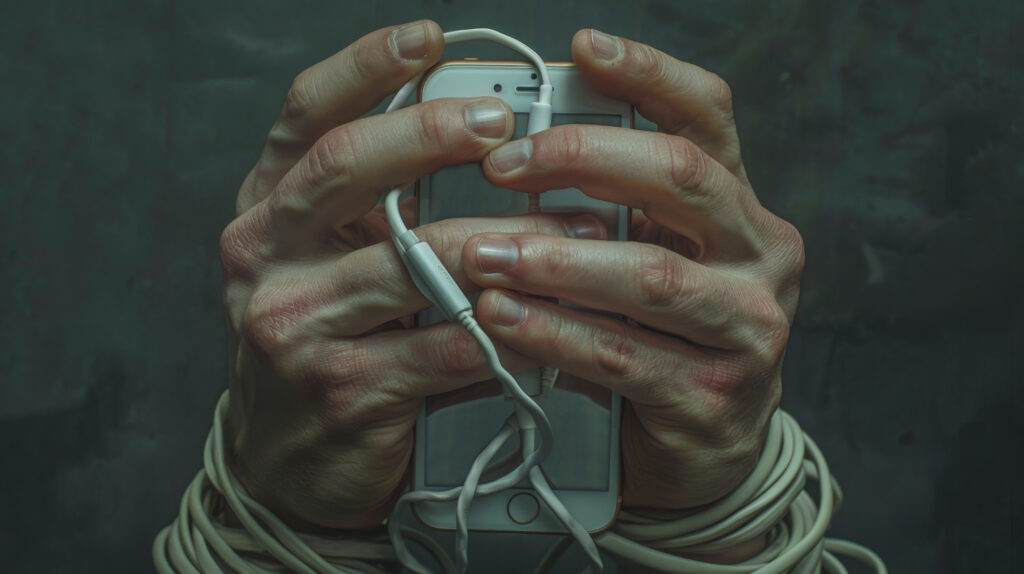You’ve just closed your laptop after a marathon Zoom session. Your eyes are strained, your shoulders tense, and somehow, despite sitting all day, you’re exhausted. Sound familiar?
For many of us 30-something professionals, this has become the daily rhythm. Work bleeds into home life through our devices, and when we finally “relax,” it often involves… yet another screen.
The Modern Man’s Stress Trap
A recent survey by the American Psychological Association found that men in their 30s and 40s report some of the highest stress levels across demographics, with work pressures and financial responsibilities topping the list of stressors. What’s more concerning is how we’re dealing with it.
“Many men default to screen-based downtime because it requires minimal effort,” says Tom Henderson, lifestyle researcher and author. “But scrolling, streaming, and gaming often don’t provide the deep relaxation our brains actually need.”
In fact, research suggests that passive digital consumption can increase feelings of restlessness and dissatisfaction rather than reducing them. Our devices keep our minds in a state of constant low-grade alertness—the opposite of what we need to truly decompress.
Why Traditional Hobbies Hit Different
Remember when you used to do things with your hands? Build stuff? Create things? Move your body for fun rather than just exercise?
There’s emerging evidence that traditional, hands-on hobbies offer specific psychological benefits that digital activities simply can’t match:
- They engage different neural pathways than those used during work hours
- They create a genuine “flow state” where time seems to slow down
- They provide tangible results you can see and touch
- They offer a sense of incremental progress and mastery
“The satisfaction of creating something concrete or developing a skill has a fundamentally different effect on our nervous system than consuming content,” explains Dr. Sarah Wilson, cognitive psychologist. “We’re seeing that traditional hobbies activate reward pathways that actually reduce cortisol levels over time.”
Finding Your Non-Digital Happy Place
So what kind of hobby might be your stress-relief sweet spot? Consider these categories that men in their 30s and beyond have found particularly rewarding:
Hands-On Creation
- Woodworking: From simple DIY projects to fine furniture making
- Cooking: Developing expertise beyond basic meal prep
- Home brewing: Beer, mead, or even non-alcoholic concoctions
- Gardening: Indoor plants, vegetable gardens, or landscape design
Jason T., 36, an IT manager from Chicago, found that woodworking changed his relationship with stress: “I used to come home from work and zone out on my phone until bed. Now I spend an hour in my garage workshop, and somehow I feel like I have more energy afterward, not less.”
Physical Engagement
- Recreational sports leagues: Basketball, soccer, ultimate frisbee
- Cycling: Road, mountain, or even casual exploring
- Hiking: Solo wilderness time or social trail groups
- Martial arts: Blending physical and mental discipline
Intellectual Pursuits
- Playing musical instruments: Learning or reconnecting with one
- Language learning: For the love of it, not just for work
- Chess, poker, or other strategic games: With in-person groups
- Model building: From classic cars to historical replicas
Mark D., 41, a marketing executive, rediscovered his passion for the guitar: “Playing music uses completely different parts of my brain than my day job. I can feel the day’s tension literally melting away when I pick up my guitar.”
Making It Sustainable
The key to making a hobby work for stress relief is removing barriers to regular engagement. Some practical tips:
- Start small: Commit to just 20 minutes, three times a week
- Create physical space: Designate an area for your hobby, even if it’s just a corner
- Find community: Local groups or online forums can provide motivation and knowledge
- Be patient with yourself: Remember that being a beginner is part of the fun
- Schedule it: Block time for your hobby as you would any important appointment
“Most men give up on hobbies because they expect immediate expertise,” says Henderson. “But the stress relief actually comes from the process, not the outcome.”
Success Story: Brewing Away Stress
Michael L., a 37-year-old software developer and father of two, found himself increasingly irritable and restless despite having achieved his career goals. “I was constantly checking email, catching up on industry news, or playing video games to ‘relax,’ but I never felt recharged.”
At his wife’s suggestion, he tried home brewing, starting with simple beer kits. “At first, it felt inefficient—I could just buy beer, right? But there’s something about the tactile experience, the science, the patience required… it engages my mind in a completely different way.”
Three years later, Michael has an award-winning homebrew IPA and significantly lower blood pressure. “My doctor actually asked what changed in my routine,” he laughs. “I think it’s because brewing forces me to be present in a way screens never did.”
The Neuroscience of Hobby-Based Stress Relief
Engaging in a manual hobby activates different parts of your brain than knowledge work does. Research from the University of California suggests that repetitive, focused hand movements—like those used in woodworking, cooking, or playing an instrument—trigger the release of neurochemicals associated with satisfaction and well-being.
“When we use our hands in structured, creative ways, we’re tapping into evolutionary pathways that digital activities simply don’t access,” explains Wilson. “There’s a reason human cultures across history have valued craftsmanship and manual skills—they fulfill something fundamental in our psychology.”
Small Steps to Start
Not sure where to begin? Try these low-commitment entry points:
- Join a one-day workshop in something that interests you
- Borrow equipment before investing heavily
- Take a field trip to observe others engaged in potential hobbies
- Revisit activities you enjoyed before “adult life” took over
- Partner up with a friend who wants to learn something new
Measuring Success Differently
Unlike work goals, hobby success isn’t about productivity or achievement. Instead, consider these alternative metrics:
- Did time seem to disappear while you were engaged?
- Did you sleep better that night?
- Was your mind quieter afterward?
- Did you feel satisfaction unrelated to external validation?
These are the true indicators that your hobby is providing genuine stress relief.
Breaking the “No Time” Barrier
The most common objection to developing a hobby is lack of time. But consider this reframe from time management expert Laura Vanderkam: “We all have the same 168 hours each week. The question isn’t whether you have time for a hobby, but whether you’re prioritizing how you spend your existing time.”
Research shows that men who dedicate even 2-3 hours weekly to a engaging hobby report feeling like they have more time overall—likely because the mental refresh makes other activities more efficient.
In our hyperconnected world, the most radical form of self-care might be disconnecting from our devices and reconnecting with activities that engage our hands, bodies, and minds in different ways.
Your career demands digital expertise, but your well-being might depend on balancing those hours with something completely different. Whether you’re crafting, building, playing, or creating, finding a screen-free hobby could be the stress management tool you didn’t know you needed.

Disclaimer: This article contains general information and personal anecdotes about lifestyle choices and is not intended as medical or professional advice. Stress management approaches vary by individual, and persistent stress may require professional support. Please consult appropriate healthcare providers regarding any health concerns.



